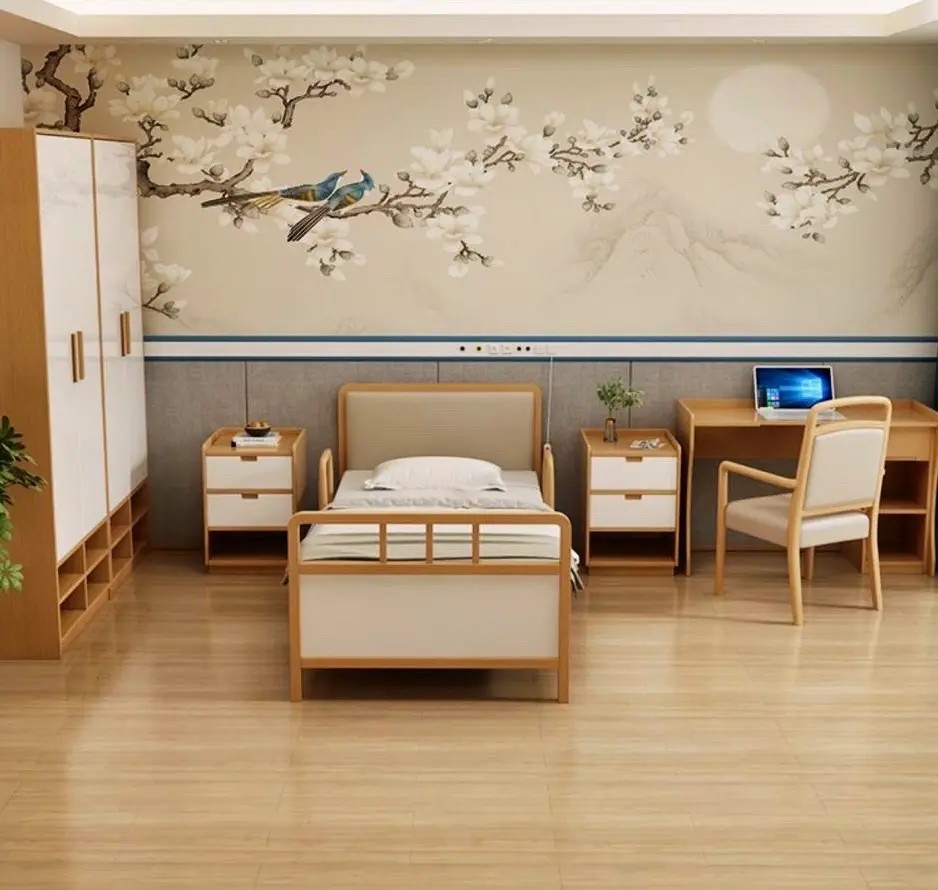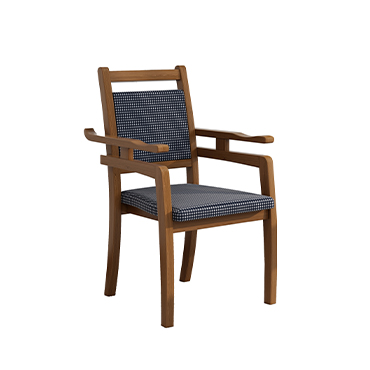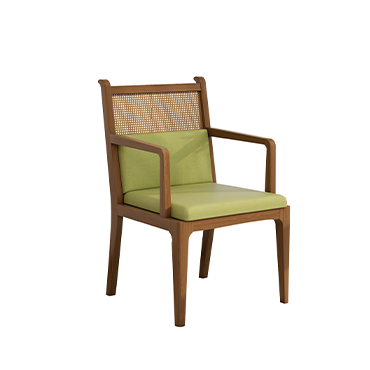Smart Tips for Caring for the Elderly: Make Aging in Place Safer and More Comfortable
Caring for aging parents or loved ones can be a challenging yet deeply rewarding experience. As people grow older, their physical abilities often decline, making it essential to provide a safe, supportive, and comfortable environment. Whether you are caring for them at home or helping them transition to an assisted living setup, these practical tips will help make elderly care easier and more fulfilling.
1.Prioritize Health and Nutrition
A balanced diet is the foundation of healthy aging. Older adults often require foods that are easier to chew and digest, with proper nutrition to maintain strength and vitality.
Focus on meals that are low in salt and fat but high in fiber and protein, while keeping a regular eating schedule. Encouraging light physical activity, such as walking or stretching, can also help support overall well-being.
2.Create a Safe and Comfortable Bedroom
The bedroom should be a secure and relaxing space. Installing a nursing bed with guardrails or adjustable height functions can help seniors get in and out of bed safely.
Add bedside assist rails, non-slip rugs, and grip socks to reduce the risk of falls. Motion-sensor or soft night lights can ensure visibility during nighttime.
Tip: For maximum comfort, consider an electric dual-function or multi-function nursing bed, ideal for elderly care at home or in senior living facilities.
3.Keep Their Minds Active
Mental stimulation plays a vital role in maintaining memory and emotional health. Encourage your loved ones to read books, solve puzzles, play brain games, or even learn new skills online.
Staying mentally engaged can help delay memory decline and boost overall happiness.
4.Maintain Warmth and Comfort Safely
Many seniors are more sensitive to cold temperatures. Provide extra blankets, hot water bottles, or non-electric heating pads for comfort.
If you use electric devices, keep them away from the bed and flammable materials. Choose electric blankets with auto shut-off or timer functions for added safety.
5.Encourage Hobbies and Social Connections
Hobbies bring purpose and joy to senior life. Encourage activities like reading, gardening, painting, or listening to music.
Social interaction—whether through family, friends, or community events—can significantly improve emotional well-being and reduce feelings of loneliness.
6.Ensure Proper Lighting and Anti-Slip Protection
Safety lighting should extend beyond the bedroom. Install motion-sensor lights in hallways and bathrooms to prevent nighttime falls.
Make sure all areas of the home are well-lit and use non-slip flooring or mats to minimize risks.
7.Care for the Caregiver
Caring for others requires energy and patience. Remember to take breaks, get enough sleep, and ask family members for support when needed.
Looking after your own mental and physical health ensures you can continue to provide the best care possible.
8.Provide Easy Access to Help
For seniors living alone, emergency systems can be life-saving. Install emergency call buttons or home monitoring devices so they can reach help easily.
Smart care furniture, such as electric lift chairs or adjustable beds, also helps seniors stay independent and safe at home.
9.Address Incontinence with Dignity
Incontinence is a common issue among the elderly. Keep absorbent pads, adult diapers, or waterproof bed protectors within easy reach to maintain hygiene and comfort.
Proper preparation helps avoid nighttime accidents and preserves the senior’s dignity.
10.Support Mobility and Independence
Encourage regular movement to maintain muscle strength and balance.
If mobility is limited, consider walkers, electric wheelchairs, or stair lifts to increase independence and reduce caregiver strain.
For active seniors, daily walks or light exercises can greatly enhance both physical and mental health.
11.Communicate and Stay Connected
Frequent conversations help you understand your loved one’s needs and emotions.
Listening to their stories and opinions strengthens family bonds and helps them feel valued, respected, and loved.
12.Explore Community and Support Resources
Local senior centers, churches, or community programs often offer helpful services such as meal delivery, social activities, and temporary respite care.
These resources can reduce caregiver stress while giving seniors more opportunities to socialize and stay active.
13.Find Practical Aging-in-Place Solutions
Modern elderly care furniture and home safety products can make caregiving much easier.
From multi-function nursing beds to adjustable chairs and safety grab bars, these innovations help create a safer, more independent home for seniors.
Conclusion
Caring for the elderly is both a responsibility and a meaningful expression of love.
With the right approach—and the right furniture—you can help your loved ones enjoy a safer, more dignified, and more comfortable life at home.





